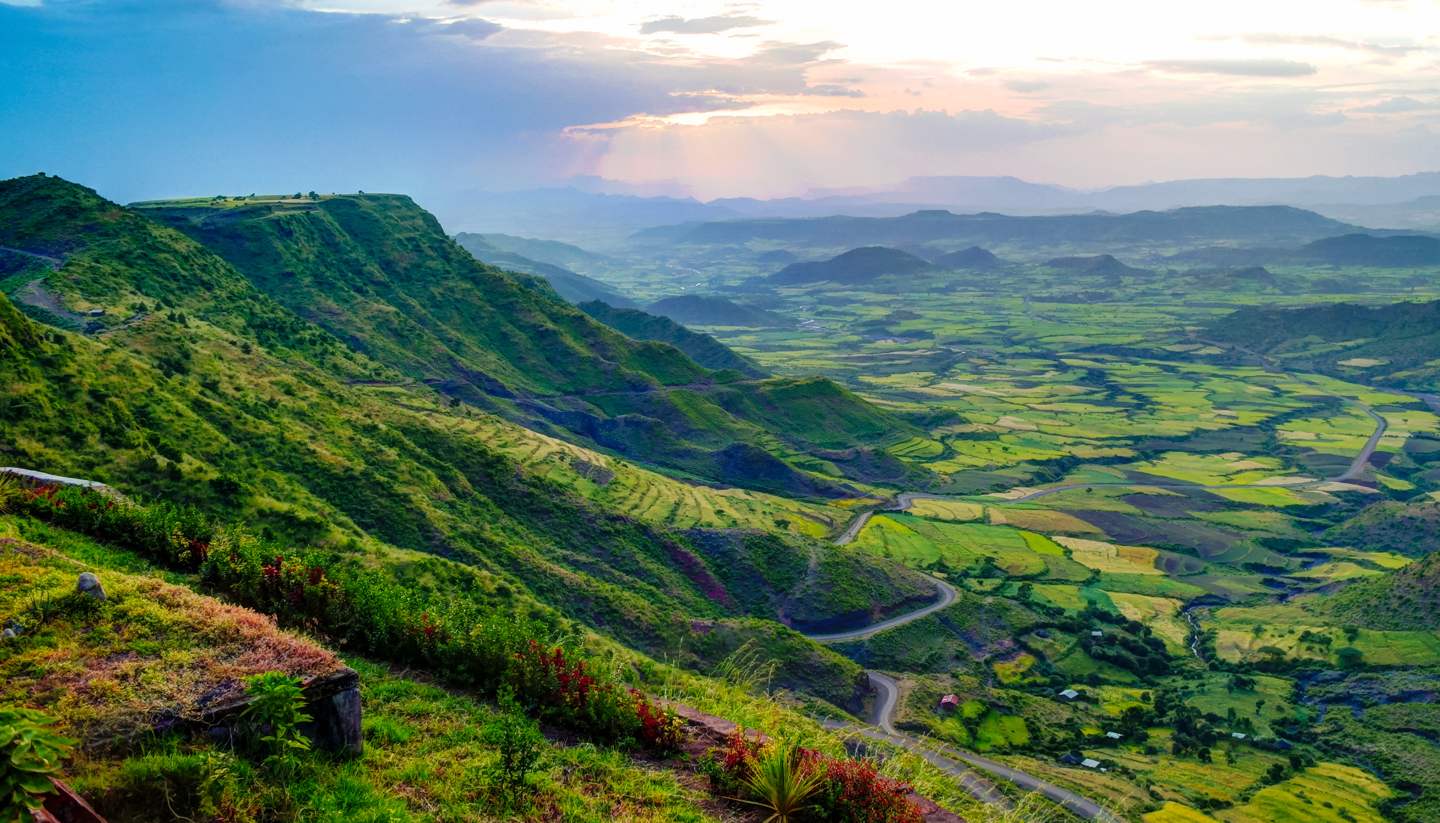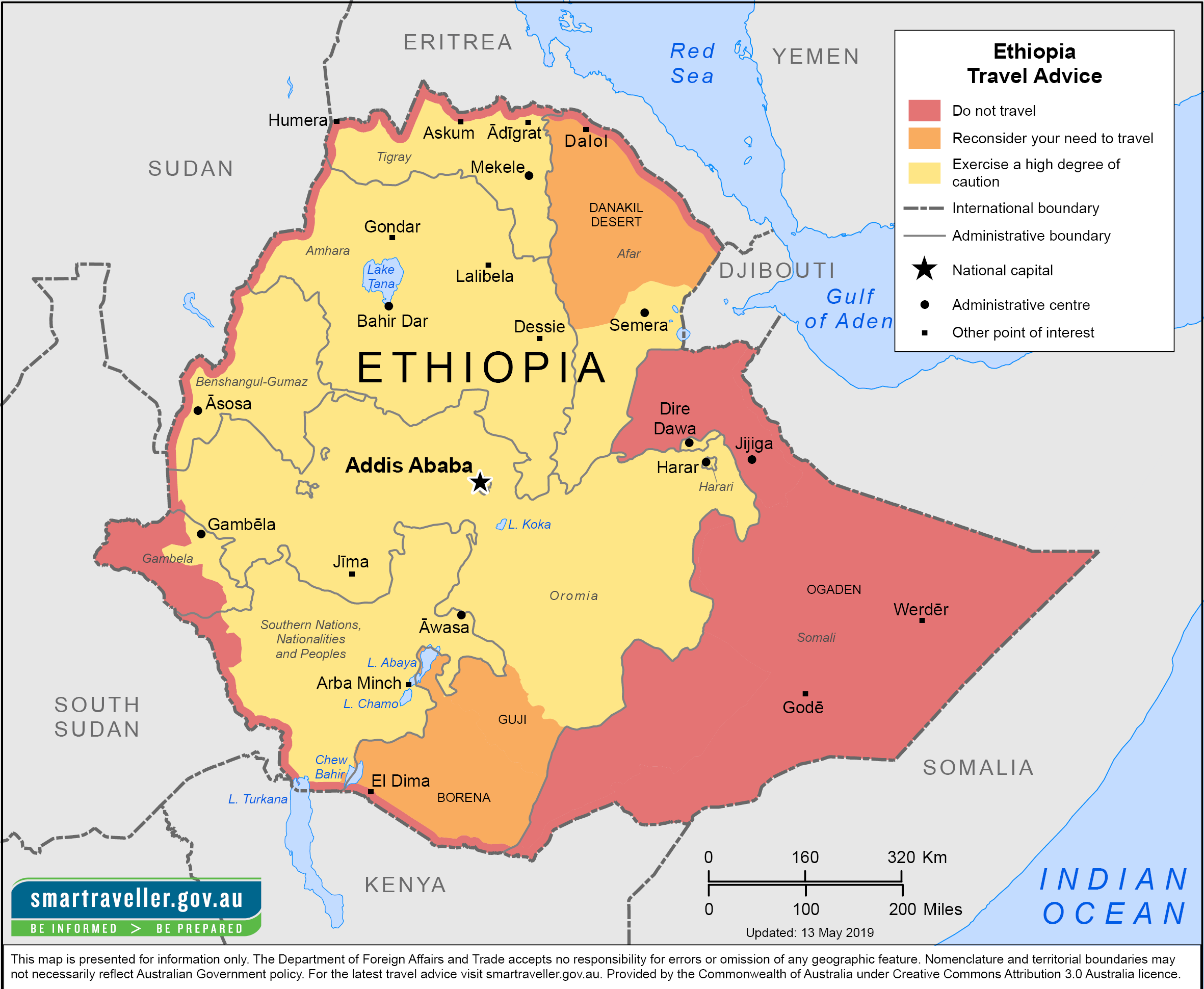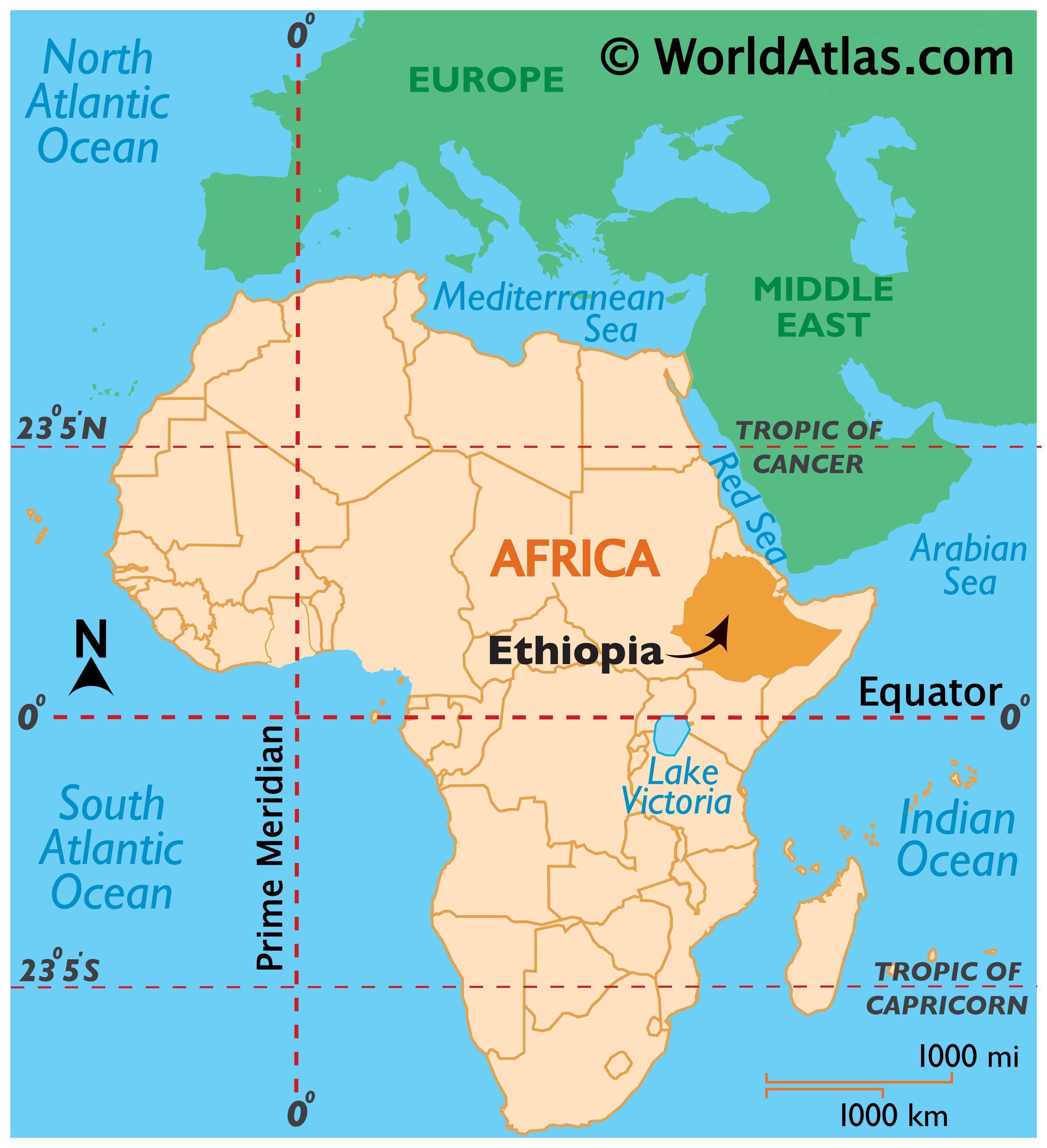Ethiopia And Iran: Forging Strategic Ties In A Complex Region
In a geopolitical landscape as intricate and dynamic as the Horn of Africa, the deepening relationship between Ethiopia and Iran marks a significant shift, signaling a new era of cooperation that extends beyond traditional diplomatic boundaries. This evolving alliance, characterized by a pragmatic approach from Addis Ababa and a strategic push from Tehran, holds profound implications for regional security, economic development, and the broader balance of power in East Africa. As both nations seek to bolster their influence and achieve their respective strategic objectives, their partnership is becoming a focal point for international observers, raising questions about stability, sovereignty, and the future of regional dynamics.
The recent agreements and ongoing collaborations between these two nations underscore a mutual recognition of shared interests, particularly in the realms of security, intelligence, and economic expansion. For Ethiopia, a nation navigating internal challenges and regional complexities, forging stronger ties with a country like Iran offers tangible benefits, especially in enhancing its security apparatus and fostering technological advancement. Conversely, Iran views Ethiopia as a crucial gateway, a strategic foothold in a vital region that can facilitate its broader engagement with the African continent. This convergence of interests, while seemingly disparate, forms the bedrock of a burgeoning partnership that demands closer examination.
Table of Contents
- A New Chapter in Bilateral Relations
- Geopolitical Significance: Iran's Gateway to Africa
- Military Cooperation and Drone Diplomacy
- Economic Opportunities and Development Goals
- Navigating Regional Rivalries
- The Broader Geopolitical Chessboard
- Looking Ahead: Implications for Stability
- Conclusion
A New Chapter in Bilateral Relations
The relationship between **Ethiopia and Iran** has entered a new, more formalized phase, marked by significant agreements aimed at bolstering bilateral cooperation. On May 6, 2025, a landmark Memorandum of Understanding (MoU) was officially signed in Addis Ababa, signifying a commitment to enhance collaboration in the field of security. This agreement, inked by General Demelash Gebremichael, Commissioner of the Ethiopian Federal Police, on behalf of Ethiopia, focuses primarily on the exchange of information and joint efforts to combat transnational crime. This strategic pact between Ethiopia and Iran is not merely symbolic; it lays the groundwork for practical cooperation between their respective national police agencies. The scope of this agreement is broad, encompassing various aspects of security and intelligence. By formalizing intelligence cooperation, both nations aim to create a more robust framework for addressing shared security threats, from terrorism and organized crime to cyber warfare. The emphasis on combating cross-border criminal activities highlights a mutual understanding of the interconnectedness of regional security challenges. This level of engagement suggests a long-term vision for a partnership built on trust and shared objectives, moving beyond ad-hoc arrangements to a structured and comprehensive approach to security.The Security and Intelligence Pact
The core of the recent agreement between **Ethiopia and Iran** lies in its focus on security and intelligence sharing. Under this MoU, their national police agencies will cooperate on a range of security matters, including combating cross-border crime. For Ethiopia, this pact is strategically important for at least two key reasons. Firstly, it is likely to significantly enhance the Ethiopian government's capacity to combat ethnic militias more effectively. Ethiopia has been grappling with various internal conflicts and insurgencies, and improved intelligence capabilities, potentially augmented by Iranian expertise, could prove crucial in restoring stability. The ability to access advanced intelligence methodologies and technologies from Iran could provide a much-needed edge in these domestic security operations. Secondly, the agreement signifies Ethiopia's proactive stance in seeking diverse security partnerships, moving beyond traditional allies. This diversification allows Ethiopia to strengthen its internal security without being solely reliant on a single external partner, thereby enhancing its strategic autonomy. For Iran, this intelligence cooperation represents a vital opportunity to cement its influence in the Horn of Africa, a region of immense geopolitical importance. Having a formalized security relationship with a key regional player like Ethiopia provides Iran with a legitimate platform to expand its strategic footprint and gather valuable intelligence in a critical part of the world. This mutual benefit forms the foundation of a resilient security partnership, positioning both nations to better address their respective security concerns.Geopolitical Significance: Iran's Gateway to Africa
Since 2016, Ethiopia has increasingly served as a crucial gateway for Iran to gain a stronger foothold in the Horn of Africa and the broader East Africa region. This period coincides with a time when other countries in the region severed relations with Iran, making Ethiopia an even more vital partner for Tehran's regional ambitions. Iran's strategic interest in Ethiopia is multifaceted, driven by a desire to expand its diplomatic, economic, and security influence beyond its immediate neighborhood. By establishing a robust presence in Ethiopia, Iran can project power and engage with a continent that holds significant strategic and economic potential. This partnership allows Iran to circumvent some of the diplomatic isolation it faces in other parts of the world, offering a new avenue for international engagement. The Horn of Africa is renowned for its complex geopolitical landscape, characterized by shifting alliances, internal conflicts, and external interventions. Ethiopia's willingness to engage with regional rivals, including Iran, signifies a pragmatic desire for stability and growth within this intricate environment. This approach allows Ethiopia to diversify its foreign policy options and avoid over-reliance on any single power bloc. For Iran, Ethiopia's strategic location, bordering several key countries and offering access to vital maritime routes, makes it an indispensable partner in its broader African strategy. This geographical advantage, combined with Ethiopia's growing regional stature, positions it as an ideal entry point for Iranian initiatives across the continent.Ethiopia's Pragmatic Foreign Policy
Ethiopia's foreign policy is a testament to its pragmatic approach, skillfully balancing ties with Middle Eastern rivals like Iran and the UAE. This unique case of convergence between regional rivals, who have otherwise remained on opposite sides of conflicts in countries like Yemen and Sudan, highlights Ethiopia's commitment to prioritizing its national interests above ideological alignments. Ethiopia's efforts to strengthen its security ties with both Iran and the UAE simultaneously demonstrate a sophisticated diplomatic strategy aimed at maximizing benefits from diverse partnerships. This balancing act is crucial for a nation like Ethiopia, which seeks to navigate complex regional dynamics while pursuing its development goals and ensuring its security. The ability of Ethiopia to engage constructively with both Iran and the UAE, despite their broader regional animosities, reflects a foreign policy that is agile and adaptable. This approach allows Ethiopia to secure vital resources, investment, and security assistance from multiple sources, thereby reducing its vulnerability to external pressures. By maintaining open channels with various powers, Ethiopia positions itself as a neutral ground for engagement, potentially even facilitating dialogue between these rival nations in the future. This pragmatic stance is a hallmark of Ethiopia's contemporary diplomacy, enabling it to carve out a unique and influential role in the Horn of Africa and beyond.Military Cooperation and Drone Diplomacy
The military dimension of the relationship between **Ethiopia and Iran** has been particularly noteworthy, with Iran emerging as a significant supplier of advanced military technology to Ethiopia. This cooperation has largely centered around the provision of drones, which have proven to be a game-changer in various conflicts. Iran's expertise in drone technology has been a valuable asset for Ethiopia, enhancing its aerial surveillance and combat capabilities. The deployment of these drones has had a tangible impact on the ground, demonstrating the effectiveness of this military partnership. This aspect of their relationship underscores a deeper level of trust and strategic alignment than mere diplomatic ties. The supply of drones from Iran to Ethiopia is a clear indication of a burgeoning military-technical cooperation. These unmanned aerial vehicles (UAVs) offer a cost-effective yet highly effective solution for modern warfare and internal security operations. For Ethiopia, acquiring such advanced technology from Iran represents a significant upgrade to its defense capabilities, allowing it to project power and monitor vast territories more efficiently. This transfer of military technology is a critical component of the overall strategic partnership, providing Ethiopia with tools that can address contemporary security challenges.Impact on Regional Conflicts: Tigray, Sudan
The impact of Iranian-supplied drones has been evident in several regional conflicts involving Ethiopia. It has already proven its value to the Ethiopian government, supplying drones that helped the Ethiopian military turn the tide of the Tigray War. Reports surfaced a few months ago of Ethiopian Prime Minister Abiy Ahmed deploying combat drones in his government’s fight against local militant groups, with Israel reportedly in a delicate position due to Iran's encroachment. This highlights the effectiveness of these drones in asymmetric warfare and their role in shaping the outcomes of internal conflicts. The ability to conduct precision strikes and gather real-time intelligence from the air has provided the Ethiopian military with a significant tactical advantage. Beyond Ethiopia's internal conflicts, Iran has also extended its military support to other actors in the region. For its part, Iran has supported the Sudanese army, supplying it with surveillance and combat drones. These have been used against the paramilitary Rapid Support Forces in Sudan’s ongoing civil war. This illustrates Iran's broader strategy of leveraging its drone technology to gain influence and support allies across the Horn of Africa. This move also puts it in direct opposition to the UAE, which has backed the paramilitary Rapid Support Forces, further underscoring the complex web of alliances and rivalries in the region. The use of drones by both sides in the Sudanese conflict highlights the increasing role of this technology in modern African warfare and the strategic importance of suppliers like Iran.Economic Opportunities and Development Goals
Beyond security and military cooperation, the partnership between **Ethiopia and Iran** also encompasses significant economic opportunities and aligns with Ethiopia's ambitious development goals. With its rapidly growing economy and strategic location in the Horn of Africa, Ethiopia offers substantial opportunities for Iranian businesses seeking to expand their presence in Africa. Ethiopia's large and young population, coupled with its focus on industrialization and infrastructure development, presents a lucrative market for Iranian goods and services. This economic dimension adds another layer of depth to the bilateral relationship, moving beyond purely geopolitical considerations. Meanwhile, Iran’s expertise in science, technology, and manufacturing could play a pivotal role in supporting Ethiopia’s ambitious development goals. Iran has made significant advancements in various technological fields, including renewable energy, pharmaceuticals, and industrial machinery, despite international sanctions. Transferring this knowledge and technology to Ethiopia could accelerate its industrialization process, enhance its manufacturing capabilities, and contribute to its self-sufficiency in critical sectors. This exchange of expertise and investment holds the potential to create a mutually beneficial economic partnership, driving growth and development in both nations. For Ethiopia, access to Iranian technological know-how could be instrumental in achieving its vision of becoming a middle-income country.Navigating Regional Rivalries
The burgeoning relationship between **Ethiopia and Iran** takes place within a complex regional context, where various Middle Eastern powers are vying for influence. Ethiopia's ability to balance its ties with Iran and other regional rivals, particularly the UAE, is a testament to its strategic acumen. While Iran and the UAE often find themselves on opposing sides in conflicts across the Middle East, such as in Yemen and Sudan, Ethiopia has managed to maintain constructive relationships with both. This unique approach allows Ethiopia to draw benefits from multiple sources without being drawn into their proxy conflicts. This balancing act is critical for Ethiopia's stability and development. By diversifying its partnerships, Ethiopia can avoid over-reliance on any single external power, thereby preserving its sovereignty and freedom of action. The fact that Ethiopia is strengthening its security ties with both Iran and the UAE simultaneously is a remarkable case of convergence between otherwise rival powers. This demonstrates Ethiopia's pragmatic foreign policy, which prioritizes national interests, security, and economic development above ideological alignments or regional rivalries. It also highlights the growing importance of the Horn of Africa as a battleground for influence, where regional and global powers seek to establish strategic footholds.The Broader Geopolitical Chessboard
The deepening ties between **Ethiopia and Iran** cannot be viewed in isolation; they are part of a broader geopolitical chessboard where major global powers also have significant stakes. The United States, for instance, has historically played a role in the region, including facilitating negotiations over critical issues like the Grand Ethiopian Renaissance Dam (GERD). While the United States helped facilitate negotiations over the Grand Ethiopian Renaissance Dam (GERD) during Trump's first term—and Egypt, Sudan, and Ethiopia appeared close to reaching a deal—the shifting alliances and growing influence of non-traditional partners like Iran introduce new complexities. The involvement of various external actors, each with their own strategic interests, makes the Horn of Africa a highly contested and dynamic region. The implications of Iran's growing influence in East Africa, particularly through its relationship with Ethiopia, are far-reaching. It could potentially alter the existing power dynamics, challenging the traditional influence of Western powers and Gulf states. The strategic importance of the Horn of Africa, with its proximity to vital shipping lanes and its role in regional security, makes it a critical area for global competition. As Iran expands its diplomatic and security footprint, it adds another layer to the already intricate geopolitical landscape, requiring careful navigation from all involved parties. The evolving relationship between Ethiopia and Iran is therefore not just a bilateral matter but a significant development that will resonate across the broader international stage.Looking Ahead: Implications for Stability
The deepening partnership between **Ethiopia and Iran** carries significant implications for regional stability. On one hand, enhanced intelligence cooperation and military support could empower the Ethiopian government to address internal security threats more effectively, potentially leading to greater stability within the country. The ability to combat ethnic militias and transnational crime with improved capabilities could reduce internal conflicts and foster a more secure environment for development. This could be a positive outcome for a nation that has faced considerable internal strife. On the other hand, Iran's growing presence and influence in the Horn of Africa could also introduce new elements of tension. The region is already volatile, and the involvement of external powers with their own agendas can exacerbate existing rivalries or create new ones. The dynamic between Iran and the UAE, for instance, playing out through their respective support for different factions in Sudan, highlights the potential for proxy conflicts. The delicate balance of power in the Horn of Africa means that any significant shift in alliances or external influence could have ripple effects across the entire region, impacting peace and security. Therefore, while the partnership offers benefits to both Ethiopia and Iran, its broader implications for regional stability will depend on how carefully these new alliances are managed and how other regional and global powers respond.Conclusion
The evolving relationship between **Ethiopia and Iran**, marked by significant security and intelligence cooperation, represents a pivotal development in the geopolitics of the Horn of Africa. From the strategic supply of drones that aided Ethiopia in the Tigray War and Iran's support for the Sudanese army, to the formal intelligence-sharing pact signed in May 2025, this partnership underscores a pragmatic alignment of interests. For Ethiopia, it offers enhanced security capabilities and technological expertise to combat internal threats and pursue ambitious development goals. For Iran, it provides a crucial gateway to expand its influence and economic presence across the African continent. This unique convergence of interests, amidst Ethiopia's balancing act with regional rivals like the UAE, highlights a sophisticated foreign policy aimed at maximizing national benefits. However, the growing influence of Iran in such a complex and volatile region also brings forth new challenges and potential shifts in the broader geopolitical chessboard. As this relationship continues to unfold, its impact on regional stability, economic development, and the intricate web of international relations in the Horn of Africa will undoubtedly be a subject of intense scrutiny. We invite our readers to share their thoughts and perspectives on this significant development in the comments section below. What do you think are the long-term implications of this burgeoning alliance for the region? Your insights are invaluable as we collectively navigate these complex dynamics.
Ethiopia Travel Guide and Travel Information | World Travel Guide

Ethiopia Travel Advice & Safety | Smartraveller

Ethiopia Map / Geography of Ethiopia / Map of Ethiopia - Worldatlas.com